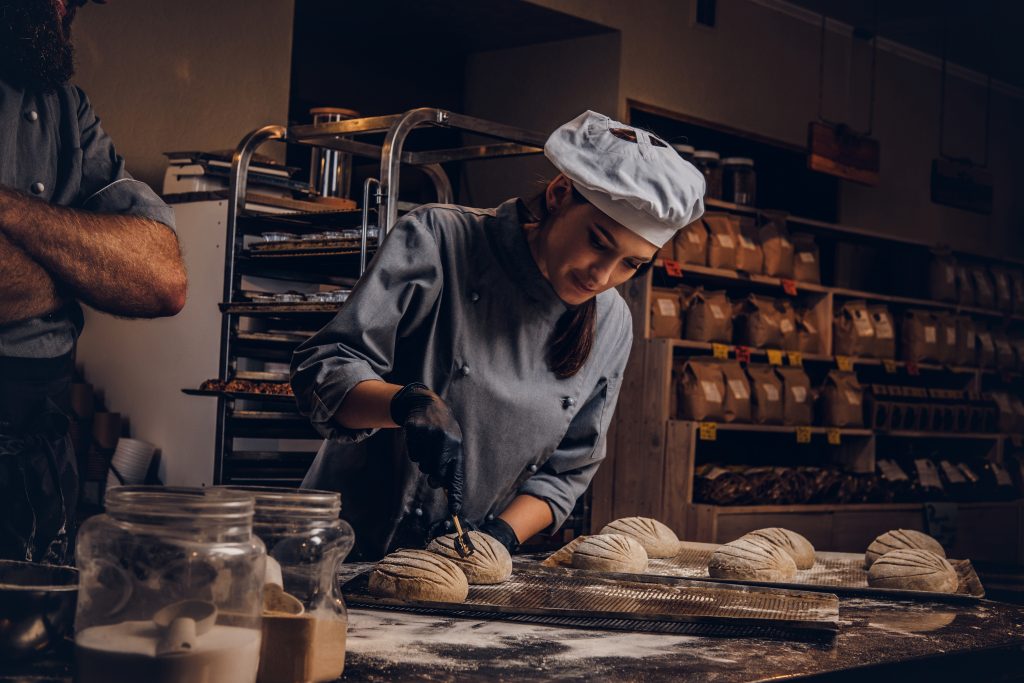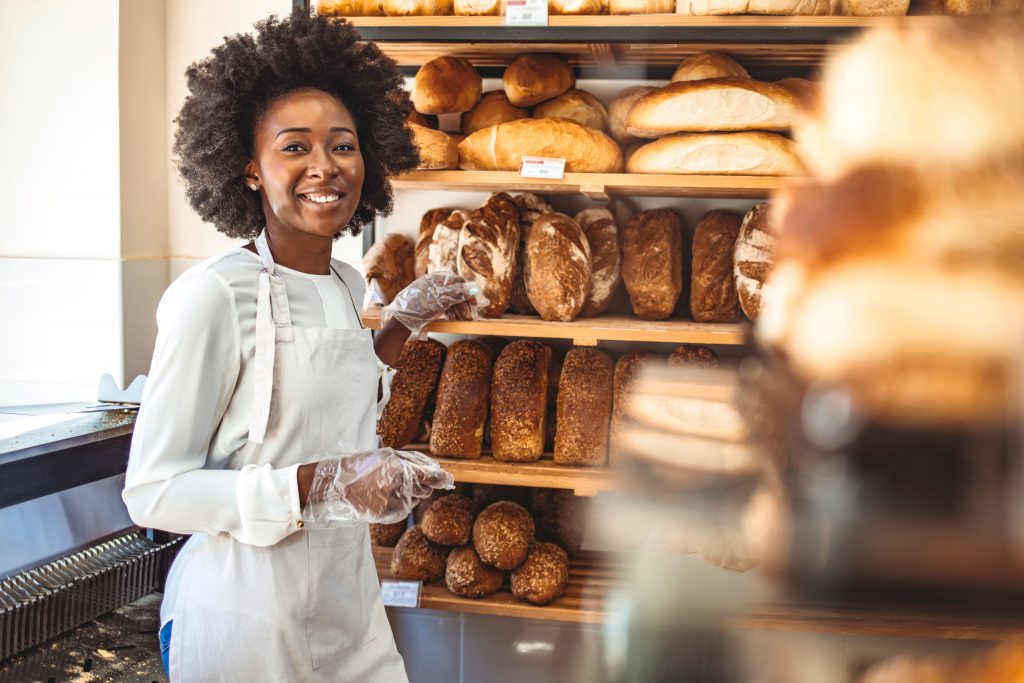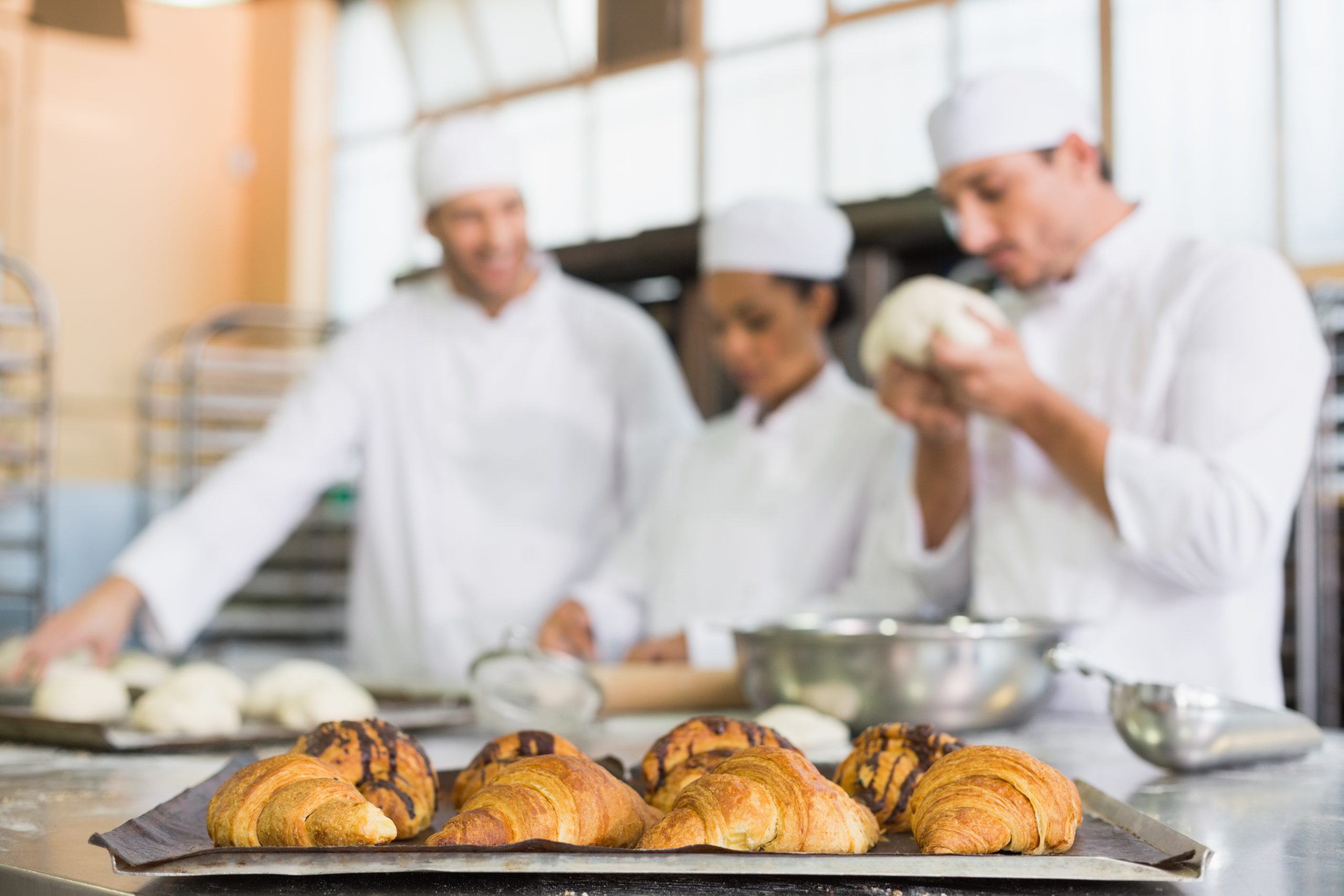Contents
How Do You Become a Baker?
No baking degree or formal education is required to become a baker. Instead, you should plan to learn on the job. Long-term training is considered the most common path to becoming a baker. Some bakers launch their careers by completing an apprenticeship program under a mentor. Others attend culinary school. However, baker education requirements do not include a formal degree. If you do plan to attend college, you can still become a baker. Below, we discuss the many different pathways to a successful career as a baker.What Degree Does a Baker Need?
As mentioned above, there is no baking degree requirement to work in this occupation. However, attending culinary school or enrolling in a baking major or related discipline at a technical school is an option. Culinary arts is one of the best degrees for bakers, but it’s not a traditional degree. Typically, students enrolled in a culinary arts program earn an associate degree. These degrees take two years to complete and provide a solid foundation for a culinary arts and baking career. The associate’s in culinary arts degree also prepares students for bachelor’s degree programs. Some of the best degrees for bakers at the bachelor’s level include:- Applied Food Studies
- Baking and Pastry Arts
- Culinary Science
- Food Business Leadership
- Food Business Management
What Does It Take to Be a Baker?
With no degree to become a baker, you can still land a job in the field with extensive on-the-job training. In fact, that’s the normal pathway to this career. While some attend culinary or technical programs, baker schooling is not a requirement. However, there are certain qualities and skills that a baker needs to succeed on the job. These skills are not always taught in the classroom. In fact, many are honed during the training period. Below are several important qualities a baker must have to succeed.- Detailed and organized: Bakers must monitor their products throughout the creation process. They must prevent items from burning in the oven, and they create intricate designs on cakes, cupcakes, and pastries. Intricate work requires a baker to be organized and highly detailed.
- Effective communication skills: Bakers deal with customers and the public. They must have excellent communication skills, especially as retail bakers, to deal effectively with customers.
- Math and chemistry skills: Basic math and chemistry skills are needed in baking. Bakers should possess solid math skills. Basic knowledge of fractions is important when mixing recipes and weighing ingredients. Also, elementary knowledge of chemical reactions is equally important when mixing ingredients.
- Physical stamina: Bakers must have good physical stamina, as they stand on their feet for long periods of time. Dough preparation, packaging baked goods, and assembling ingredients require bakers to be on their feet for long stretches.
- Physical strength: Heavy flour bags weigh 50pounds or more. Bakers must carry flour bags and other packages of ingredients that weigh over 20 pounds. Bakers should be able to lift and carry heavy bags. Good physical strength is needed for this job.

How Long Does It Take to Become a Baker?
Since there is no formal education required in becoming a baker, the time it takes to establish a career in culinary arts depends on a variety of factors. First, you must decide if you want to pursue technical or culinary school, or if you would rather acquire your skills through an apprenticeship. Most culinary programs take one to two years to complete. To qualify for admission to one of these programs, you must have a high-school diploma or equivalent and meet the general requirements.How to Become a Baker Without a Degree
Becoming a baker does not require a college degree. You don’t even have to attend baking school to land a job as a baker. However, you will need extensive training. Bakers typically learn their skills through on-the-job training. This training takes one to three years to complete, but most bakers are lifelong learners. They continue to hone their skills through practice and experience. While a baking career requires no degree, work experience, training, and certifications are a major part of the occupation. It’s through these experiences that bakers learn new techniques in baking, decorating, and icing, or more efficient methods in sanitation procedures. Some bakers take classes as part of their certification requirements, or they enroll in a workshop that offers training in a particular area of interest. Some even enroll in a nutrition course at a local community college to gain knowledge for their career. The point is that the baker occupation requires a love or passion for learning. As a baker, you’ll constantly be cultivating your baking techniques. As new technologies give way to more efficient baking practices, you’ll need to stay on top of the game by learning new methods.Certifications for Becoming a Baker
While certification is optional, it shows the level of commitment, knowledge, and skill a baker has. Certification is offered by the Retail Bakers of America (RBA). This not-for-profit association was founded in 1918 and is committed to the growth and success of the retail baking industry. Their role is to partner with bakers and connect buyers and sellers to help promote success in the baking business. RBA is also committed to the personal growth and development of bakers. As a result, their certification program helps bakers showcase their depth of knowledge by passing exams on four different levels of competence. These levels include:- Baking sanitation
- Management
- Retail sales
- Staff training

How Much Money Does a Baker Make?
According to the Bureau of Labor Statistics (BLS), the median annual wage for bakers is $29,400. However, the lowest 10% of earners make less than $21,000 annually, and the highest 10% make more than $43,000 per year. As the average wage for all occupations is $41,950, bakers earn less than the national average. Also, since the median annual wages for all food processing workers is $30,960, as reported by BLS, bakers earn a lower wage on average. Certain industries pay slightly higher-than-average wages. According to BLS, there are three industries that offer the highest earnings for bakers. These are as follows:- Food and beverage stores: $30,010
- Bakeries and tortilla manufacturing: $29,810
- Restaurants and other eating places: $27,540
- District of Columbia: $37,930 (annual mean wage)
- Hawaii: $37,930
- Wyoming: $37,500
- Vermont: $36,900
- Massachusetts: $36,740
- Kahului-Wailuku-Lahaina, Hawaii: $42,890 (annual mean wage)
- Burlington-South Burlington, Vermont: $40,200
- Walla Walla, Washington: $40,100
- San Jose-Sunnyvale-Santa Clara, California: $39,140
- San Francisco-Oakland-Hayward, California: $38,640
- Western Wyoming non-metro area: $40,350
- West North Dakota non-metro area: $40,070
- Eastern Sierra-Mother Lode region of California: $39,430
- Maryland non-metro area: $38,780
- North Coast region of California: $35,570
What Is the Job Outlook for Bakers?
If you’re considering becoming a baker, now is a great time to pursue your goals. In fact, the Bureau of Labor Statistics (BLS), reports a projected 10 percent growth in employment over the next decade, slightly faster than the average growth for all occupations (eight percent). This growth is over twice as fast as the projected growth of four percent for all food processing workers. According to BLS, about 28,300 job openings for bakers are anticipated each year, on average, for the next 10 years. This favorable job outlook is appealing for aspiring bakers. Much of the growth comes from the need to replace workers who retire from the profession or transfer to different occupations. But, the most critical factor impacting the favorable job outlook for bakers is population and income growth. As population increases in certain areas and income rises, a greater demand for specialty bakers will be needed. The industry will see greater demand for specialty products, such as cakes, cupcakes, and pies. Demand will spur grocery stores, restaurants, and retail bakeries to carry more specialty baked goods. The only area of the baking industry that may see limited growth is food manufacturing. Due to technological advances and the use of automated machines and equipment to mass-produce baked items, employment for bakers in this area could be limited. However, overall, growth should remain favorable for this profession over the next 10 years.
What Is the Work Environment Like for Bakers?
Once you’ve completed your education for baker work, it’s important to understand the type of work environment you’ll face. According to the BLS, bakers held over 193,000 jobs last year. While this number may seem high, there are only four industries that employed the bulk of those in the baking profession. BLS reports the largest employers for bakers as follows:- Bakeries and tortilla manufacturing: 29%
- Food and beverage stores: 28%
- Restaurants and eateries: 18%
- Self-employed bakers: 11%
- 5 Jobs With a Bachelor’s in Tourism
- 20 Best Online Bachelor’s in Operations or Project Management
- 30 Best Online Bachelor’s in Health Sciences and Nutrition
- 30 Best Affordable Bachelor’s in Hospitality Management Online 2022
- Top 30 Affordable Online Bachelor’s in Business Administration (BBA)
- Ultimate Guide to Trades Degrees and Careers

